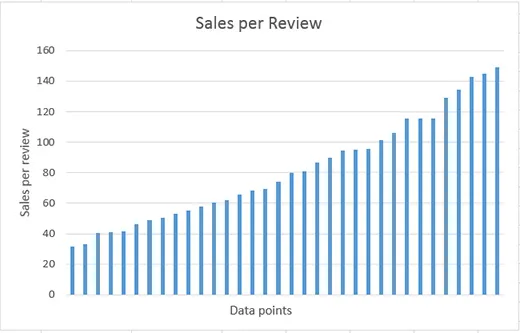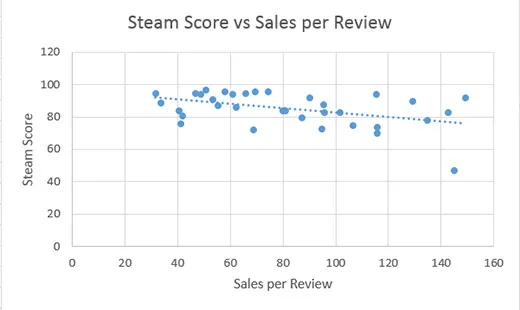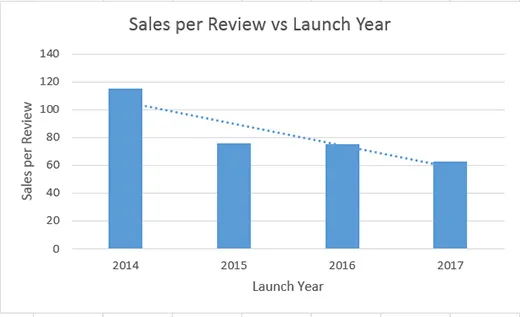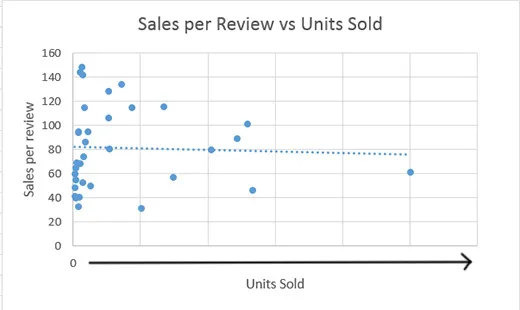Steem This Number Is Already Linked to an Existing Account or to an Account Still Under Review

Back in 2014, before SteamSpy, I wrote this article about using Steam's review count to estimate sales. And so SteamSpy came along and we all used that instead.
However, now that SteamSpy is unable to show the number of owners due to Valve's privacy policy changes, the skillful old review count method has get valid once again!
I decided it was worth getting an updated "Boxleiter" number (how much you lot should multiply a game's review count past in order to estimate units sold). And so as per usual I asked a bunch of indies to supply accurate data. This fourth dimension I got over l data points. Read on to detect my conclusions!
The Headline
The average from my dataset is 82x and the median is 77x. e.one thousand. if a game has 1000 reviews you can approximate information technology has sold about 80000 units.But delight go along reading as in that location are some of import things to notation.
I think someone mentioned the Boxleiter number was 50x, but in my web log mail from 2014 I came up with thirty-100x with 70x being the middle, just that included AAA as well as indie games. This new number is for premium indie games only (no F2P), although I did collect data from minor titles and big (complex) ones, and the range in success is huge as well.
The Range
There's also a pretty wide range from 30x to 150x. And then if yous apply the median of 77x, you might have overestimated or underestimated by well-nigh 2x. I think it'southward still useful though as you can say 1000 reviews could mean thirty,000 to 150,000 sales just it'due south more than probable to be in the middle somewhere.
Notes
- This ratio was calculated from looking at Steam sales only (not "retail" sales from Steam keys such as via Humble Bundle) and "All Reviews" from the top of a game'south store page just under the clarification (this filters out reviews made by people who got the game through a Steam key).
- These results could contain errors although I've washed my all-time to check them with the devs when I got foreign readings.
- I've excluded any games that launched earlier Steam reviews went live in November 2013 fifty-fifty though some of those results are still probably pretty accurate.
- I also excluded 2 outliers with values of 18 an 226 but they didn't really alter the average/median anyhow.
- You lot still can't judge acquirement using this number because you don't know how many sales are from discounts and how big those discounts were. If a game is newer you can presume it's been discounted less and get a better effigy, say for the 1st calendar month or 1st year.
Caveat
As with all my posts, I'grand just collecting this data and sharing it and my conclusions for fun. Please don't base of operations any disquisitional business decisions on it.

Does Review Score Matter?
I noted down the electric current Steam review score for all the titles and y'all can see the results above. To be honest I can't see a decent correlation in that location, mayhap a slight one indicated by the trendline. So y'all could presume that a well-reviewed game volition accept slightly LESS sales per review, but not many.

Does Launch Date Matter?
YES! I bet you are glad you read this far because I bucketed the results into launch yr (encounter chart in a higher place) and there does seem to exist a decrease in the ratio as time goes on.
If the trendline is somewhat accurate it could mean that newer games do go more than reviews and that over fourth dimension reviews become less frequent, OR it'due south a change in players' reviewing habits on Steam (specially as reviews were a relatively new thing in 2014), OR information technology's a change in the types of games being fabricated because I believe genre probably affects the amount of reviews you lot become the most (more on this below).
Also information technology's possible that games get the most reviews per sale in the first month when true fans purchase them only I don't have decent data on that. Though I was pretty sure I saw this happen for Shadowhand and I've checked the ratio for a couple of games released in the last 3 days and it is low (average of 38x). So make of that what yous will.
The Headline V2
OK so now we demand to tweak the headline a fleck. Basically if I ignore games launched in 2014 the average is more similar 71x and the median is 64x. It makes sense to use more recent information anyway. The range is still about 30x to 150x.
So what about 2017? Well the average drops to 63x and the median is 65x. The range is almost 30x to 100x but I only accept eight data points, so be careful with that.
Does Genre Matter?
I'm pretty sure it does but it's really difficult to attach a label to many indie games and also I'll end up with too few data points for many of the labels.
But based on what I can encounter, I think that Roguelikes/sims/strategy accept a higher ratio, and take chances/coincidental/puzzle with story elements have a lower ratio.
This could be because players who feel personally "affected" by a story-based game are more than likely to go out a review than someone who was playing a more mechanics-driven game? OR information technology could be that the player demographics of those games are different and people in those demographics are more or less likely to leave reviews. But it'due south merely speculation at the moment (and may have to remain that mode!)
Anyway, potentially you could employ genre to chose which end of the range to edge towards. due east.yard. for story-based, go lower than the average/median, and for mechanics-driven go higher.
What else could be a factor?
Could the quantity of sales affect things? The thought existence that afterwards sales are to less hardcore fans who are less probable to leave a review. Well I plotted that (see beneath), and no it does n't seem to be a factor, which is kinda interesting. Though probably I need more information for highly successful games.

What nigh Median Play time? Well unfortunately I don't have that information, merely perhaps if players play your game for longer they might exist more probable to go out a review. Merely then again, this goes against my theory that story-based games (which are typically shorter) get more reviews per sale than longer mechanics-driven games.
OK then that'due south information technology for now. If you experience like sharing your data (don't share actual sales numbers in public), just post your sales per review ratio in the comments (see the notes section above for how to accurately become that information).
This article originally appeared on the Grey Alien Games blog.
Source: https://www.gamedeveloper.com/business/using-steam-reviews-to-estimate-sales
0 Response to "Steem This Number Is Already Linked to an Existing Account or to an Account Still Under Review"
Post a Comment